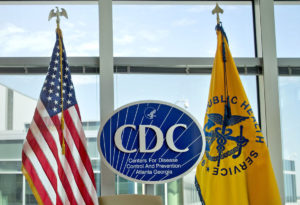Public health officials say they’ve seen a big increase in acute hepatitis A infections in Georgia.
Hepatitis A is a highly contagious liver infection. It can range from a mild illness lasting a few weeks to a severe illness lasting several months.

Large outbreaks have occurred in other states among injection drug users and other drug users, the homeless, and men who have sex with men, Department of Public Health officials said in an advisory this week.
Since January 2018, 170 acute hepatitis A infections, including one death, have been identified in the state. That’s more than six times the number of infections reported in 2017.
Of the 170 cases, 87 have been identified since the beginning of this year, said Public Health spokeswoman Nancy Nydam.
About 60 percent of the infections have occurred in northwest Georgia, North Georgia and the Augusta area. But hepatitis A cases also have increased in other areas of the state, Public Health said.
Symptoms can include nausea, vomiting, abdominal pain, loss of appetite, fever, diarrhea and headache. It is usually transmitted person-to-person through the fecal-oral route or consumption of contaminated food or water.

Two-thirds of the hepatitis A cases in Georgia have resulted in hospitalizations, Public Health said. The agency added that 27 percent were associated with injection drug use; 32 percent associated with non-injection illicit drug use; 14 percent among men having sex with men; and 19 percent among contacts of a confirmed hepatitis A patient.
Most people who get hepatitis A feel sick for several weeks, but they usually recover completely and do not have lasting liver damage, the CDC says.
In rare cases, hepatitis A can cause liver failure and death. This is more common in people older than 50 and in people who also have other liver diseases.
Hepatitis A had been declining for a long time before the outbreaks the last couple of years in multiple states, said Dr. Jesse Jacob, an infectious disease specialist at Emory School of Medicine. “It’s not terribly surprising that we’re seeing many of these cases in Georgia,’’ he said Thursday.
Most hepatitis A cases are mild, Jacob said. And it’s not a chronic disease, unlike other forms of hepatitis. Once it’s out of a patient’s system, it’s gone, he said.

Since March 2017, the CDC’s Division of Viral Hepatitis has been assisting several state and local health departments in dealing with hepatitis A outbreaks.
The Alabama Department of Public Health (ADPH) said in late December that it was investigating an increase in hepatitis A cases in the northern part of that state.
Tennessee has reported a large number of cases since December 2017, including four deaths.
Hepatitis A is a vaccine-preventable disease. The best protection is vaccination among populations at risk. Practicing good hand hygiene, including hand washing after using the bathroom and while preparing food, also helps prevent the spread of the disease, Jacob points out.
The Advisory Committee on Immunization Practices recommends that the following groups be vaccinated against hepatitis A:
** All children age 1 or older
** Men who have sex with men
** Illicit drug users (injection or non-injection)
** Household members and close personal contacts of people with hepatitis A infection
** People who are homeless
** Travelers to countries where hepatitis A is common
** People with chronic liver disease, including hepatitis B and/or hepatitis C


